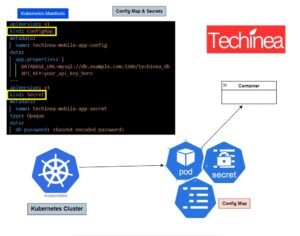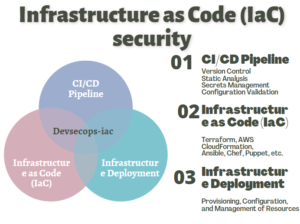The role of a DevSecOps engineer encompasses a wide range of responsibilities, as they are tasked with integrating security practices into the DevOps pipeline.
Here’s a breakdown of the roles and responsibilities typically associated with a DevSecOps engineer:
Security Architecture Design: DevSecOps engineers are responsible for designing and implementing security architecture within the DevOps pipeline. This involves understanding the organization’s security requirements, defining security controls, and architecting solutions that align with best practices and regulatory compliance standards.
Tooling Selection and Integration: DevSecOps engineers select, deploy, and integrate security tools and technologies into the CI/CD pipeline. This includes tools for vulnerability scanning, code analysis, compliance checking, threat detection, and more. They evaluate various tools to ensure they meet the organization’s security needs and integrate seamlessly with existing DevOps tools and processes.
Automation of Security Processes: Automation is a key aspect of DevSecOps, and DevSecOps engineers are responsible for automating security processes wherever possible. This includes automating security testing, compliance checks, security configurations, and incident response procedures. They develop scripts, workflows, and automation pipelines to streamline security tasks and ensure consistent application of security controls.
Security Testing and Assessment: DevSecOps engineers conduct security testing and assessment throughout the SDLC. This includes static code analysis, dynamic application security testing (DAST), software composition analysis (SCA), penetration testing, and other security testing methodologies. Main task is to identify vulnerabilities, security weaknesses, and compliance gaps and work with development teams to remediate them.
Security Training and Awareness: DevSecOps engineers promote security awareness and best practices among development, operations, and other relevant teams. They provide security training, workshops, and documentation to educate team members about secure coding practices, threat modeling, security policies, and compliance requirements. They also conduct security reviews and audits to ensure adherence to security standards.
Incident Response and Remediation: DevSecOps engineers play a crucial role in incident response and remediation efforts. They monitor security alerts and incidents, investigate security breaches or anomalies, and coordinate response actions with cross-functional teams. They develop incident response plans, conduct post-incident reviews, and implement measures to prevent similar incidents in the future.
Continuous Monitoring and Improvement: DevSecOps engineers continuously monitor and improve the security posture of the DevOps pipeline and deployed systems. They implement security monitoring tools and techniques to detect and respond to security threats in real-time. They also analyze security metrics and performance indicators to identify areas for improvement and optimize security processes.
Collaboration and Communication: DevSecOps engineers collaborate closely with development, operations, security, and other stakeholders to ensure security is integrated throughout the SDLC. They facilitate communication and collaboration between teams, advocate for security requirements, and promote a culture of shared responsibility for security.
Overall, DevSecOps engineers play a critical role in bridging the gap between development and security teams, ensuring that security is prioritized and integrated into every aspect of the DevOps pipeline. They combine expertise in security principles, DevOps practices, automation, and collaboration to enable organizations to build and deploy secure software efficiently and effectively.
To Explore More in DevSecOps- Read More :
Roles and Responsibilities of DevSecOps Engineer
DevSecOps Tool-Static Application Security Testing (SAST) tools
DevSecOps Tool-Dynamic Application Security Testing (DAST) Tools
DevSecOps Tool-Software Composition Analysis (SCA) Tools
DevSecOps Tool-Container Security Tools in DevSecOps
DevSecOps Tool-Infrastructure as Code (IaC) security Tools
DevSecOps Tools – Secrets Management Tools
DevSecOps Tools – Vulnerability Management Tools
DevSecOps Tools – Security Orchestration, Automation, and Response (SOAR) Tools
Identity and Access Management-(IAM) in DevSecOps
DevSecOps Tools – Security Information and Event Management (SIEM) tools




